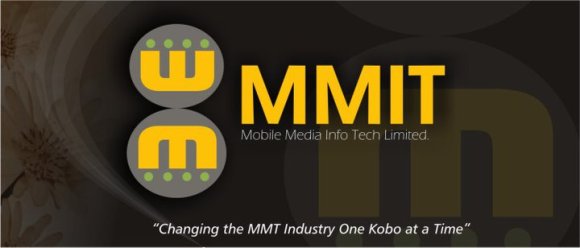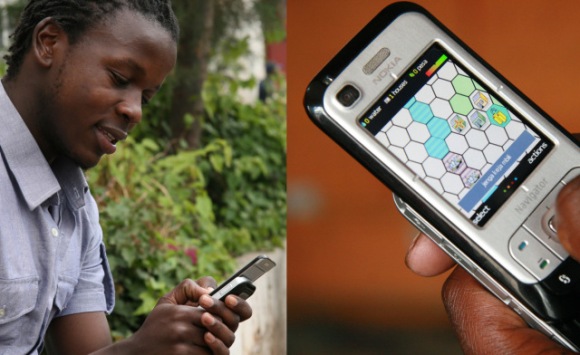 What lies beneath the surface of a troubled country?
What lies beneath the surface of a troubled country?
People may question why would a company consider doing business in a country like Nigeria with poor infrastructure, frequent terrorist attacks, political instability, corruption, fraudulent internet activities, and more than 40% of the population living below the poverty level. What benefits could the country possibly have that outweighs such turmoil?
Most people only see the negative aspects of entering an African nation. However, to see the opportunities you have to look beyond the common perceptions and recognize the true market potential.
The most valuable resource
Africa is known for its abundance of resources such as oil, gas, gold, and diamonds, but what may be the greatest asset is often overlooked– the people. Africa is home to 1.11 billion people making it the second largest and second most populous in the world.
Nigeria is the largest country in Africa and ranked 7th worldwide in terms of population with 173.6 million people as of 2013. Not only is the population large but it is also young, entrepreneurial spirited, and growing. Roughly half the population is reported to be 19 years of age or younger. Interestingly, Nigeria reportedly has the highest total entrepreneurial activity in the world; many Nigerians tend to be innovative and business oriented by nature.
Growth and investment in a rising nation
Nigeria’s projected growth rates rival the top emerging economies – even the renowned BRICS nations.
In April 2014 Nigeria surpassed South Africa as the largest economy in Africa, with a GDP of $510 billion in 2013, $190 billion more than the GDP of South Africa. GDP grew by 7.4% in 2013 up from 6.5% in 2012 and is forecasted to achieve an average growth rate of 7.1% through 2030. Nigeria is ranked as the 26th largest economy in the world and is on track to break the top 20 by 2030. Nigeria plans to invest heavily in 5 major economic sectors to sustain growth: agriculture, trade, infrastructure, manufacturing, and liquid production of oil and gas.
The impressive growth has recently attracted investors all over the world. According to Frontier Market Sentiment Index report in the Wall Street journal, Nigeria is the number one frontier market in terms of attracting investment interests from European and American multinationals. Citing an average of 3 out of 10 major companies having Nigeria on their watch list. Large multinationals such as Dominos, YUM! Brands, and P&G are examples of businesses planning to further expand their current presence in Nigeria because of their success.
With an unsaturated market and promising future, Nigeria is considered an “economic sweet spot” for business.
A mobile hot spot
The combination of the market size, age, and growth offers great potential to become the most lucrative mobile telecom markets in Africa. The industry accounted for more than a quarter of the GDP in 2013.
Nigeria is ranked 8th in internet usage worldwide with over 67 million users, the majority accessing the web through their mobile phones as many do not have desktop computers and broadband issues remaining prevalent. Nigerians with their adaptive instincts have leap-frogged several technological product cycles; one instance is many people are buying cell phones before having a landline for their household. Nigeria has over 120 million mobile phone users with over 70% market penetration and is predicted to continue to grow substantially. Although mobile phone penetration is rapidly increasing, only about 25% of the population owned a smartphone in 2013 but this number is expected to increase as technologies become more affordable and as the middle class rises.
The mobile service carrier industry is fiercely competitive with main operators MTN, Airtel, Globacom, and Etisalat battling for market share. However, opportunities in other areas within the mobile sector such as applications, content, and payment methods are immense and profitable. Nigerians use their mobile phones for work, entertainment, and social media beyond typical talk and text features. Nigerians are the leading country in Africa in terms of social media use with well over 11 million users with over 6 million members on Facebook’s site alone. Nigeria ranks the 4th in terms of Facebook membership growth rate.
Nigeria is in a great position to benefit from worldly economic trends including the rising demand from emerging economies, growing demand for global resources, and spreading the digital economy. Despite the continued problems within the nation Nigeria continues to display impressive economic growth rates, a growing middle class, and a youthful population that embraces technological developments making the market extremely attractive for business.
Please visit our “Mobile Market Look” series and our look at the Kenyan mobile market
To Follow MMIT and subscribe to our newsletter please contact us at newsletter@mmitonline.com




 Kenya has the most sophisticated mobile money ecosystem in Africa, and maybe the World. Infrastructure improvements, and lack of rigid regulations by the Central Bank of Kenya and the government, have led to market growth and an increase in digital services. M-Pesa, established by Safaricom in 2007, started the current mobile payment revolution and now transacts over $5 billion annually which accounts for 17% of Kenya’s GDP. Over 2 million mobile money transactions take place every day and according to MEF studies mobile money and mobile payments still present the greatest opportunity for growth in Kenya. It is estimated that 85% of the population has used mobile money at some point and most Kenyans prefer mobile money to cash because of the ease of use and the safety. Most African nations are cash-based and people still carry large sums of cash on them, especially when they are sending money to relatives in remote parts of the country, so mobile money offers a safer and easier alternative. Kenya’s financial institutions have picked up on this and are jumping on the bandwagon and creating their own mobile money products. Equity Bank has its own M-Kesho mobile money product and I&M Bank has its own prepaid Safari Card available on the M-Pesa platform.
Kenya has the most sophisticated mobile money ecosystem in Africa, and maybe the World. Infrastructure improvements, and lack of rigid regulations by the Central Bank of Kenya and the government, have led to market growth and an increase in digital services. M-Pesa, established by Safaricom in 2007, started the current mobile payment revolution and now transacts over $5 billion annually which accounts for 17% of Kenya’s GDP. Over 2 million mobile money transactions take place every day and according to MEF studies mobile money and mobile payments still present the greatest opportunity for growth in Kenya. It is estimated that 85% of the population has used mobile money at some point and most Kenyans prefer mobile money to cash because of the ease of use and the safety. Most African nations are cash-based and people still carry large sums of cash on them, especially when they are sending money to relatives in remote parts of the country, so mobile money offers a safer and easier alternative. Kenya’s financial institutions have picked up on this and are jumping on the bandwagon and creating their own mobile money products. Equity Bank has its own M-Kesho mobile money product and I&M Bank has its own prepaid Safari Card available on the M-Pesa platform.





